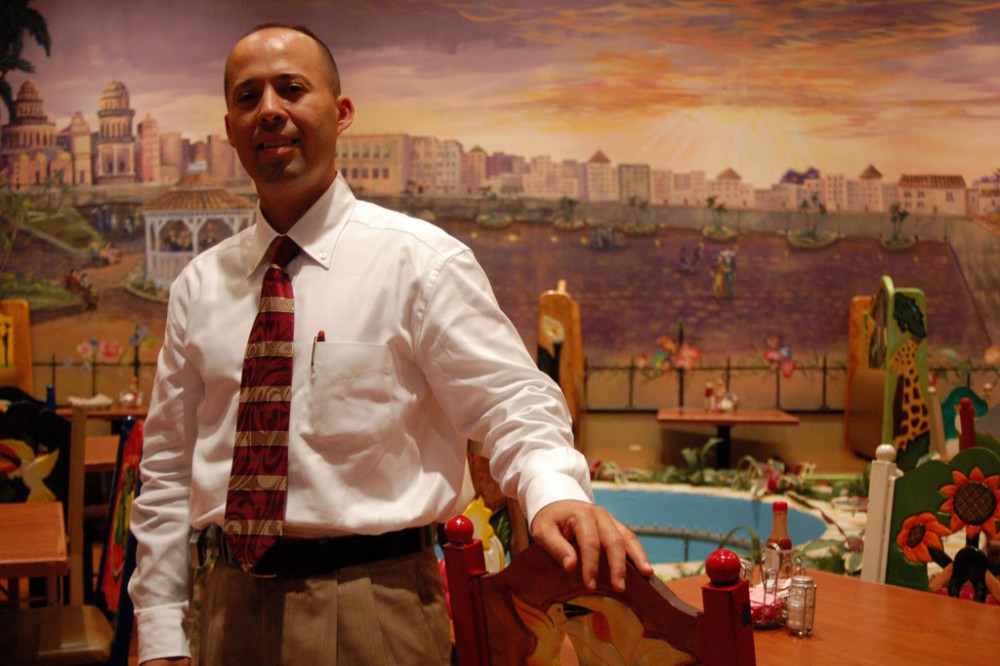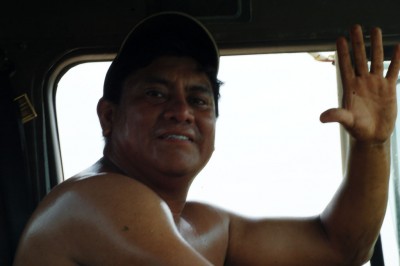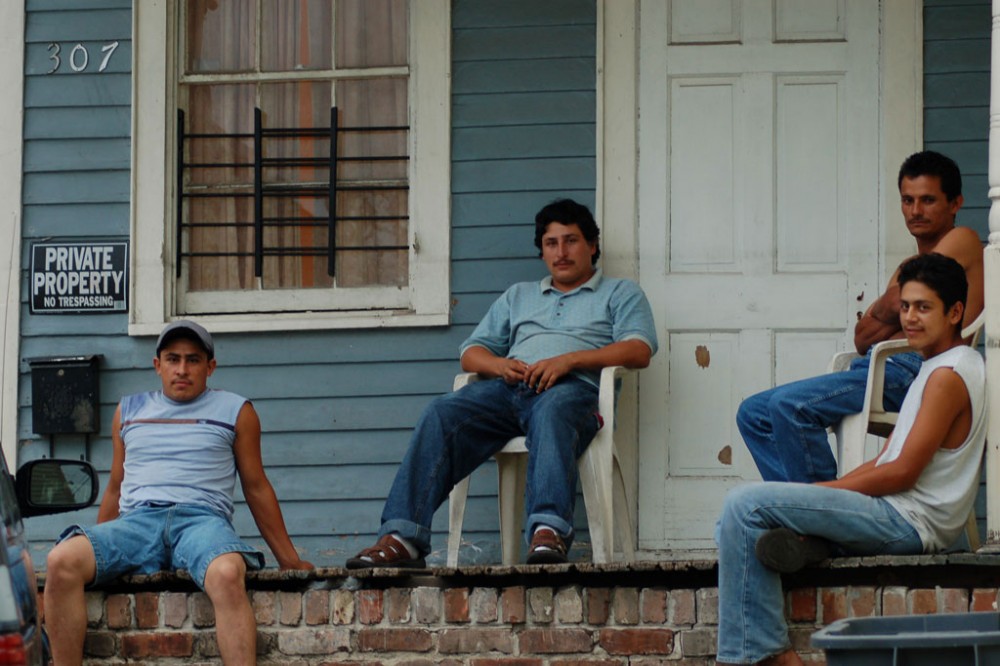Este artículo también está disponible en: Español
Wednesday, October 8th 2008As historic as this political year may be — an African-American and a woman running and record numbers of unlikely voters tuning in — it doesn’t seem to awaken the sleeping giant.
Juvencio Rocha Peralta in Kinston, N.C., has not seen the electoral fever sweep up many Latinos.
The president of the Association of Mexicans in North Carolina, Rocha Peralta, 44, says that not even the recent rise in anti-immigration rhetoric from state politicians has energized Latinos about voting Nov. 4.
“What I’ve seen in North Carolina is that, unfortunately, the percentage of those Latinos who actually vote is small,” he says.
Despite ambitious voter registration drives by Hispanic advocacy groups this year, it still remains to be seen whether the election will be the breakthrough they expect.
“Our research doesn’t tell us that Hispanics are as excited for the two candidates as some people assume they are,” says Eduardo Gamarra, a political science professor at Florida International University and a consultant for Newlink Research, a company that conducts nonpartisan polls and focus groups among Latinos.
“I really don’t know whether I’ll have the chance to go vote,” says Gerónimo Barragán, 41, who lives in the key battleground state of Florida, in the small Panhandle town of Milton.
The Mexican-born Barragán, a religious man and an entrepreneur who owns two restaurants, considers President Bush a good, strong leader. But Barragán, who became a citizen a few years ago, has yet to enter a voting booth.

- “I really don’t know whether I’ll have the chance to go vote,” says Gerónimo Barragán, 41, in Milton, FL.
In Smithville, halfway between Houston and Austin, Texas-born Sanjuana Moreno, 20, says she considered Barack Obama potentially a better President for Latinos. Not that he should count on her vote.
“I don’t feel it’s going to make a difference,” says Moreno, a waitress in the sole Mexican restaurant in town.
The National Association of Latino Elected Officials estimates a record 9.2 million Latinos — 53% of eligible Hispanic voters — will vote next month. In 2004, nearly 7.6 million, or 47% of eligible Latinos, cast a vote.
Gamarra doubts Latinos will reach their potential ceiling of 9% of the total vote. “Optimistically,” he predicts, turnout will be between 7% and 8%.
“We’re not all citizens, that means we’re not all going to vote,” Gamarra says. “Second, of those who are citizens, not all have registered to vote.”
All eyes on economy

- "We want the economy to get better,” says Diego Ramírez, a Guatemalan tobacco picker in North Carolina.
The issues that matter to Latino voters in the presidential election pretty much reflect the general population’s concerns.
“It’s the economy, it’s housing, gasoline prices,” says Francisco Moya, a Democratic district leader in Queens.
Recent polls confirm that the top issues for Hispanics are the economy, the war in Iraq, health care and education.
“We don’t want more war and we want the economy to get better,” says Diego Ramírez, 33, a Guatemalan-born worker loading tobacco leaves on a truck in an eastern North Carolina field.
Three days to register
The dateline to register to vote in New York is Friday.
The only exceptions are if you are honorably discharged from the military or become a naturalized citizen after Friday, then you may register in person at the Board of Elections until Oct. 24.
Last-minute filers need to have their voter registration form postmarked no later than Friday.
The Board of Elections has offices in all five boroughs, for information call 1 (866) VOTE-NYC, or visit www.vote.nyc.ny.us.
For these stories, reporter Diego Graglia traveled from New York to Texas with stops in Virginia, North Carolina,Georgia, Louisiana and Florida, interviewing Latinos about the elections.
 Every-Night Fever at the Milonga (2007)
Every-Night Fever at the Milonga (2007)  Migrants Suffer in Mexico (2006)
Migrants Suffer in Mexico (2006)  Leaving Wall Street (2006)
Leaving Wall Street (2006)  Torn Up Over Being Torn Down (2004)
Torn Up Over Being Torn Down (2004) 



